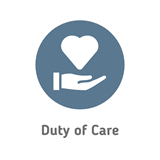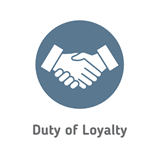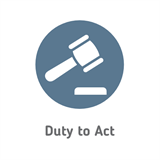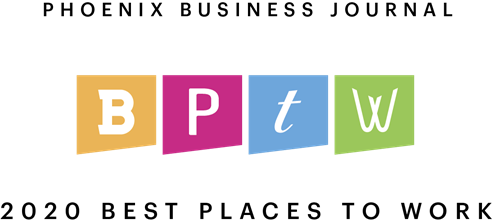Understanding the purpose of, and the different roles in, your Community Association.
You’re not alone if you’re asking what the purpose of an annual meeting is and what the differences are between an HOA, the Board of Directors, and the Management Company. Understanding the differences will help you have an even better experience for yourself and your family living in an HOA.

What is the purpose of an HOA Annual Membership Meeting?
The budget is presented during the annual HOA meeting, and past achievements and future goals are discussed. Committee reports are shared, creating a forum for members to ask questions and engage with the board and management. Board elections for expiring seats occur, allowing homeowners to vote for new directors. The governing documents or by-laws typically outline term lengths and eligibility.
What is the purpose of an HOA?
Community Association Living (a CAI publication) describes homeowners associations designed to manage common or shared property, protect owners’ property values, provide services to residents, and develop a sense of community through social activities and amenities. All residents have an essential role in a community’s success, but board members have a particularly vital job.
HOA refers to homeowners’ association; essentially, the HOA is responsible for maintaining items that are not the individual homeowner’s responsibility. Someone has to represent those interests to ensure the community’s assets are maintained and replaced at the appropriate time, that the community’s budget is well funded, and that home values are kept at an optimal pace. This is where the role of a board member comes in…
What is my role as a board member?
Your role is a very important one. You are responsible for making decisions directly impacting your community’s operations and finances. As a volunteer board member, you’re a fiduciary, prioritizing the community’s interests above your own in decision-making. As a fiduciary, you must protect the community by managing the budget, funding reserves, collecting assessments, and ensuring insurance. In sum, you actively preserve and enhance property values. This is no easy task, so selecting a professional management company is critical.
What is the role of the management company?
The management company works for the HOA and is hired by the Board of Directors. We help the board preserve community assets, maintain property values, and manage HOA operations and finances.
The Board sets policy, and the management company implements those policies by making decisions.
What are some examples of how a management company assists the Board?
- Coordinates maintenance activities
- Seeks out proposals and screens vendors (licensing and insurance requirements)
- Manages human resource needs
- Informs the Board when legal advice is necessary
- Manages the association’s finances (delinquencies, budgeting, examining reserves, assessment collection, payables and receivables, financial reporting)
- Works with professional partners: CPA, legal counsel, reserve specialist, and insurance agent
- Guides the Board through day-to-day operations by having a strong understanding of governing documents, governmental laws, and state statutes
- Brings the element of “community” through lifestyle programming
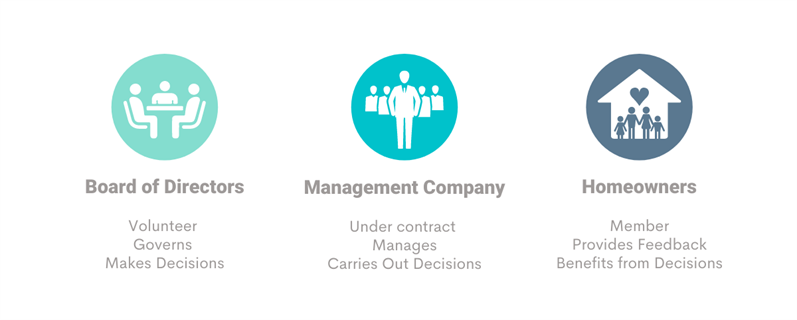
Board of Directors:
Volunteer, Governs, Makes Decisions
Management Company:
Under contract, Manages, Carries Out Decisions
Identifying who does what provides an excellent foundation for understanding your community association. It clearly defines how to care for the community and directs residents to the right contacts for their concerns. It clarifies board leaders’ roles, the management company, and what they do, enabling focused success. It’s a true partnership between board members, management company team members, vendors, and residents. A strong partnership in all capacities equals a successfully run community association!
Have A Question?
If you live in an association and have questions about the purpose of an HOA, fill out our Contact Us form, and we will happily contact you to answer them.




